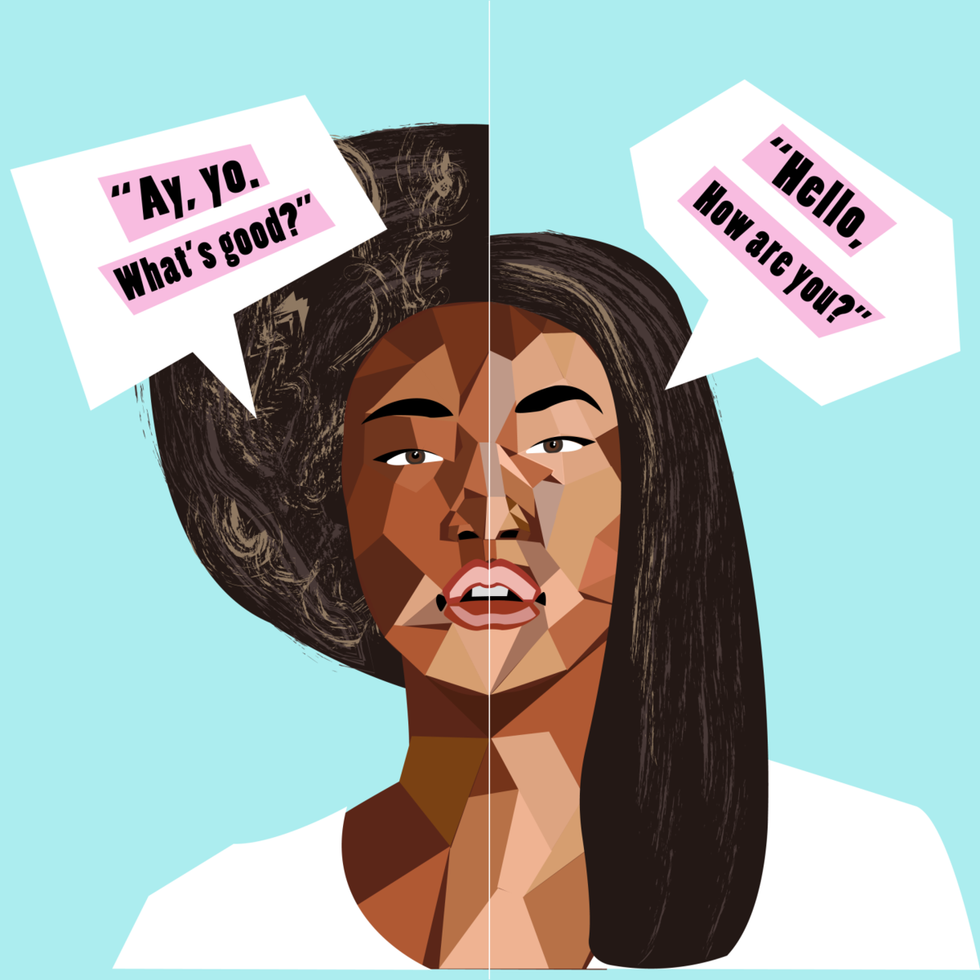In this week’s post, I will be focusing on African American Vernacular English, more commonly known as AAVE.
If you are unfamiliar with what AAVE is, it’s a dialect of the English language that originated from enslaved Black Americans. Their language and speaking was passed down for generations, and then spread across the United States as Black people migrated.
Spilling Tea, Period, Go Off, Finna, Chile, Sissss, Heardu, Trippin,
AAVE is like a second language to Black Americans. It consists of grammatical structures, vocabulary, particular usages, and pronunciations. While commonly labeled as slang, these unique words and phrases follow a tradition and are constantly evolving as the community behind them sees fit.
Like any other language, people who grew up exposed to AAVE can intuitively understand when it’s being spoken correctly or unauthentically. These ‘native speakers’ have generations of cultural context that can not be learned or replicated by individuals who are not part of this group.
So, where does AAVE and its usage stand today? Well, in schools, children are told that speaking in AAVE is not proper, illegitimate, and ghetto. In fact, Black Americans have been racialized on the idea that we are inherently lazy, poor, uneducated, or criminal. And to add onto that, Black people’s usage of AAVE is found to be sloppy, unprofessional, and ignorant.
This negative connotation around AAVE is completely forgotten when it’s used by non-black people and is instead seen as comedic or sensational.
This trend is seen time and time again with influencers rising to fame because of their use of AAVE and the mockery that they make of it. One example of this is Brit Barbie, a TikTok influencer who rose to fame after a video of her using AAVE went viral. Her use of AAVE was not the issue, but rather the fact that she made a mockery of the language without giving credits to its origins nor addressing the negative connotations associated with it.
So, where do I stand with AAVE? Well…I would say that I don’t really have any experience with it. My family migrated from Nigeria, and doesn’t have deep roots in ‘Black America’, its cultures, or traditions. Growing up in a Nigerian home in the suburbs of Pennsylvania, I never interacted or heard AAVE.
Today, I occasionally hear AAVE on social media platforms and in major cities like New York and Philadelphia when visiting. While I have a lot of respect for the language and it’s history, AAVE doesn’t come naturally to me, so I chose not to use it.
As AAVE gains popularity, I encourage others to learn its history, diminish the negative connotation surrounding it, and use the language with the respect it deserves.



This post was very informative and eye-opening. Growing up in a Hispanic household and attending a high school that was 99% Hispanic, I have had my own experiences with dialogue (commonly referred to as “Spanglish”) that has been adapted by a specific group of persons and also the negative use of this dialogue by people who have no knowledge of the history surrounding it. It is mind boggling to me that someone’s culture can be viewed as negative when used by the people that created it, but then accepted when someone uses it who has no idea of its origin.
I grew up in a community of mostly middle to upper-class white people, but I still heard language similar to this all the time. I never knew where it came from, I just thought it was something that was popular on TikTok so I started hearing it more. I never heard of it as not proper or anything like that. I never knew the origins of the words, just the context of what they were used in.